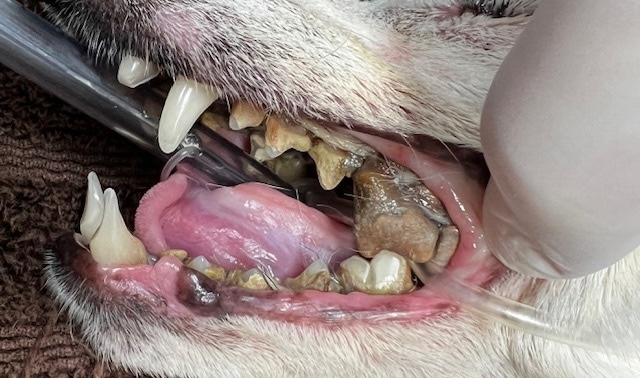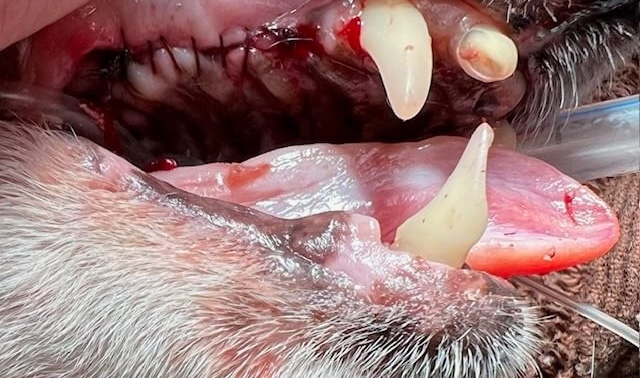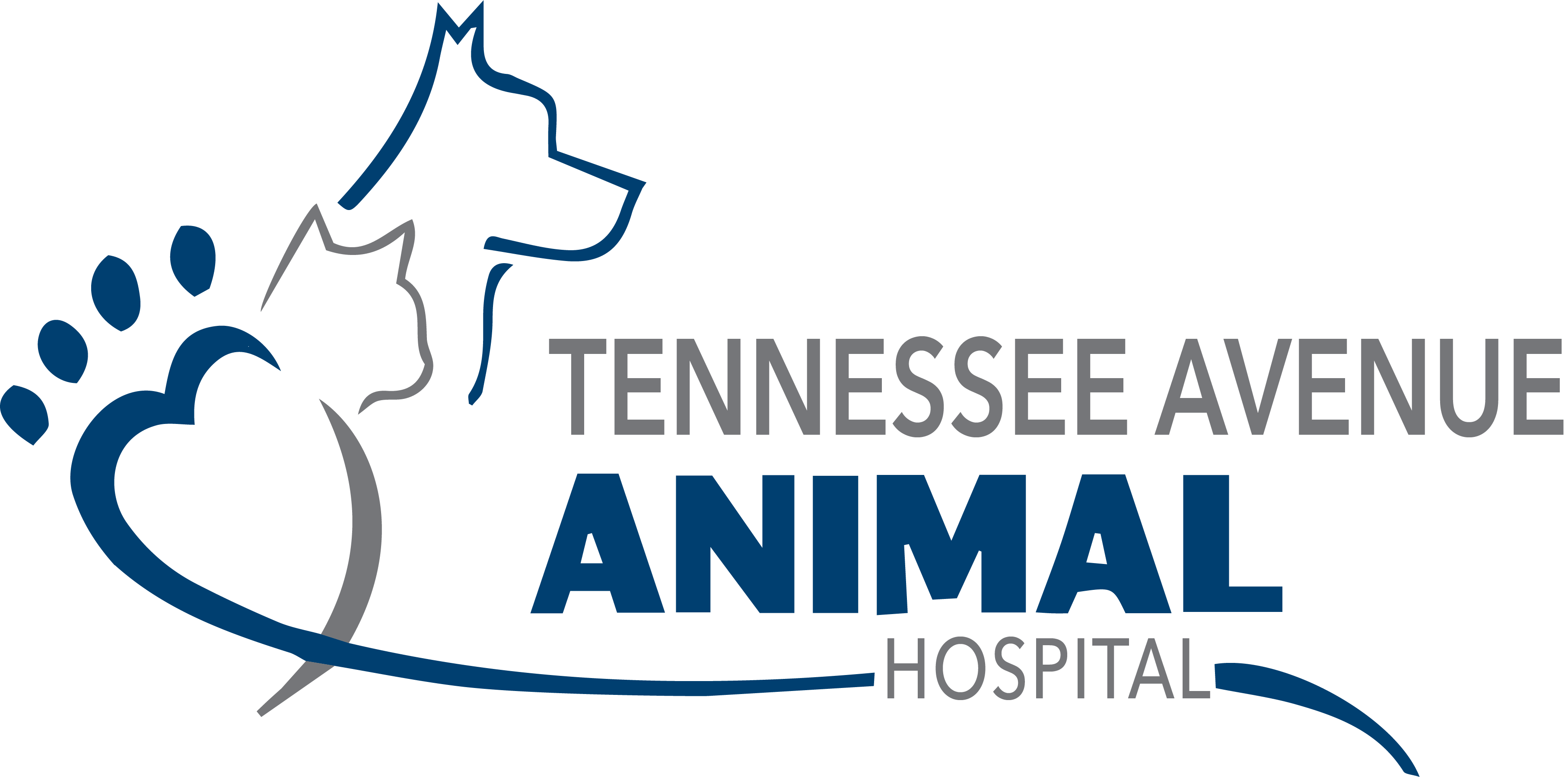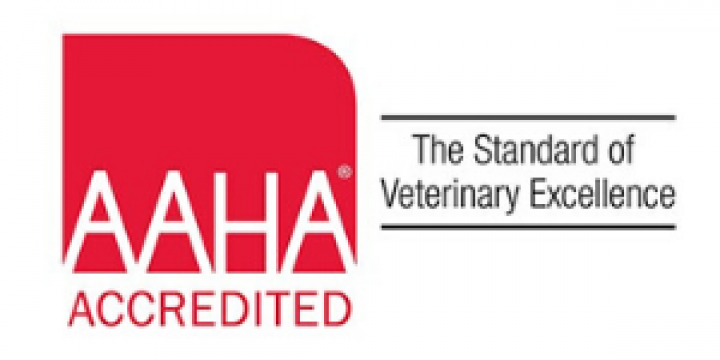Healthy Mouth, Healthy Pet
We Offer Complete Pet Dental Care
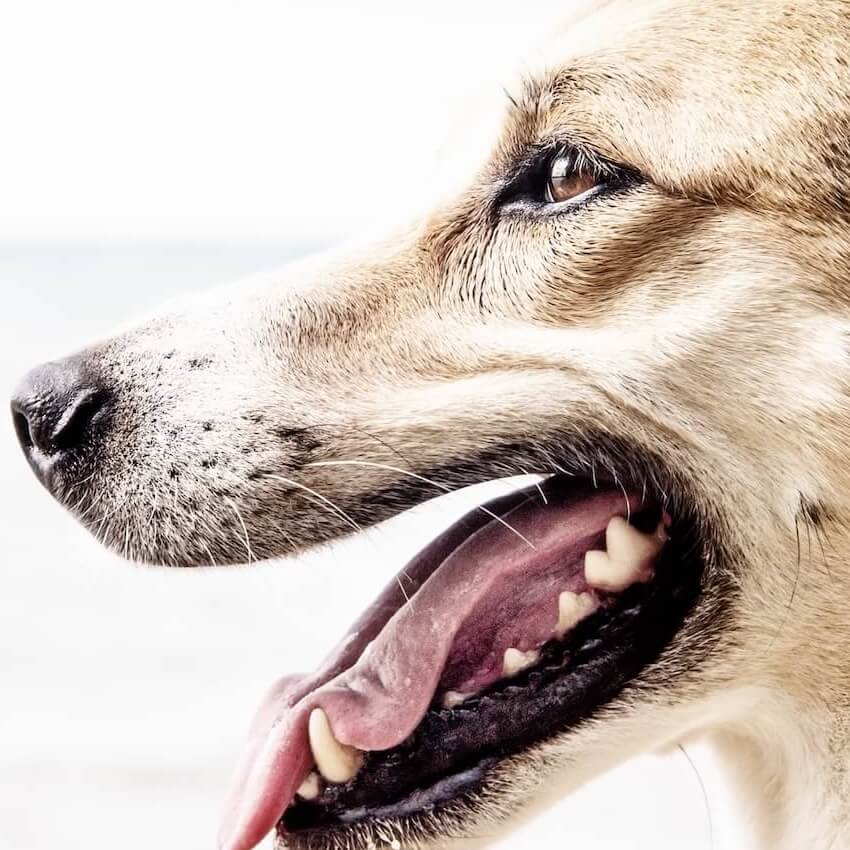 You brush your teeth every day to keep your mouth clean and healthy. Would you be surprised if we told you that your pet needs the same treatment? Pet dental care is often overlooked among pet owners, not for lack of compassion but because our pets tend to hide their oral problems.
You brush your teeth every day to keep your mouth clean and healthy. Would you be surprised if we told you that your pet needs the same treatment? Pet dental care is often overlooked among pet owners, not for lack of compassion but because our pets tend to hide their oral problems.
At Tennessee Avenue Animal Hospital, your pet's oral health is just as important to us as their overall health. If your pet has an unhealthy mouth, they're likely to be unhealthy in other aspects as well. Therefore, we help you recognize your pet's oral problems and guide you on how to manage their dental care.
Professional Dental Services
Pets use their mouths not just for eating but for playing and investigating the world around them. Therefore, it's important that they receive the most comprehensive and high-quality dental care possible.
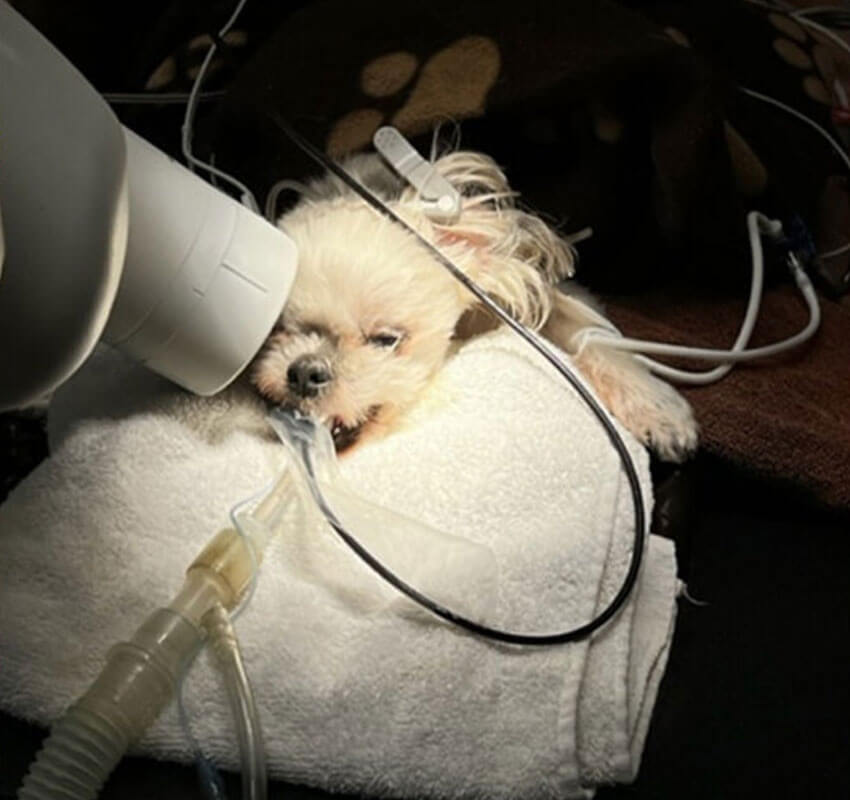 A complete dental prophylaxis procedure at our hospital includes:
A complete dental prophylaxis procedure at our hospital includes:
- Preoperative blood work and an exam to make sure your pet is healthy before being sedated for their procedure
- ECG Screening - Preoperative screening to make sure there is no overt heart disease prior to anesthesia.
- General anesthesia to allow for a safe and pain-free dental prophy (cleaning)
- Scaling each tooth to remove calculus and harmful bacteria from above and below the gum line
- Digital dental X-rays before and after the dental if extractions are needed
- Gingivectomy to remove diseased gum tissue and eliminate pockets between the teeth and gums
- Extractions to remove loose, broken, and/or decaying teeth
- Appropriate antibiotics and pain relief medications
- Surgical suturing of gums after extractions
- Therapeutic laser after extractions to promote healing and decrease pain
Common Symptoms Of Gum Disease
Gum disease affects a large number of cats and dogs, but it can be prevented with regular dental care. Common signs we observe in pets with 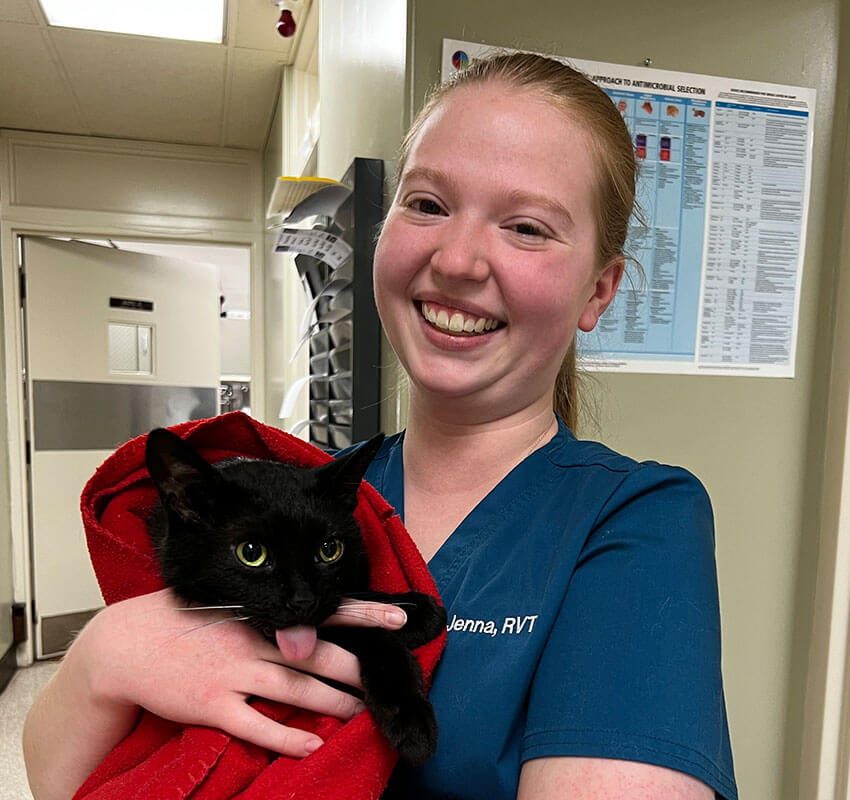 varying stages of gum disease include:
varying stages of gum disease include:
- Bad breath
- Yellow/brown teeth
- Teeth that are loose or broken
- Red, swollen, and/or bleeding gums
- Excessive drooling
- Difficulty eating and chewing
- Decreased appetite
- Decreased activity, less interest in chew toys
- Swelling around the face, rubbing or pawing at face/mouth
- Pets compensate well for dental disease so you may not see any outward signs until your pets dental disease us severe
Bad breath is not normal for pets. If you notice any of the above signs, let us know at (513) 242-2141 so we can examine your pet and help you decide on the best treatment for their needs.
At-Home Care Options
Along with our professional pet dental care services, we also offer at-home treatments to help maintain your pet’s teeth and gums between cleanings, reducing plaque and tartar buildup. Supplement dental care with toothbrushes, toothpaste, Hill’s T/D (tartar control diet) — great for treats but not as a main diet — and dental chews.
If you need help brushing your pet's teeth, let us know so we can provide a demonstration. Daily brushing is ideal for removing plaque buildup and preventing the onset of gum disease. However, if brushing is not an option, a tartar control diet and dental chews can be just as helpful.
Before & After
This is the mouth of a 15-year-old well-cared-for mixed breed dog (before and after a dental cleaning) that had significant tartar and gum disease, as well as a tooth that needed to be extracted. With good care and routine dentistry, this patient will have a healthy mouth and nice breath for the rest of his life.
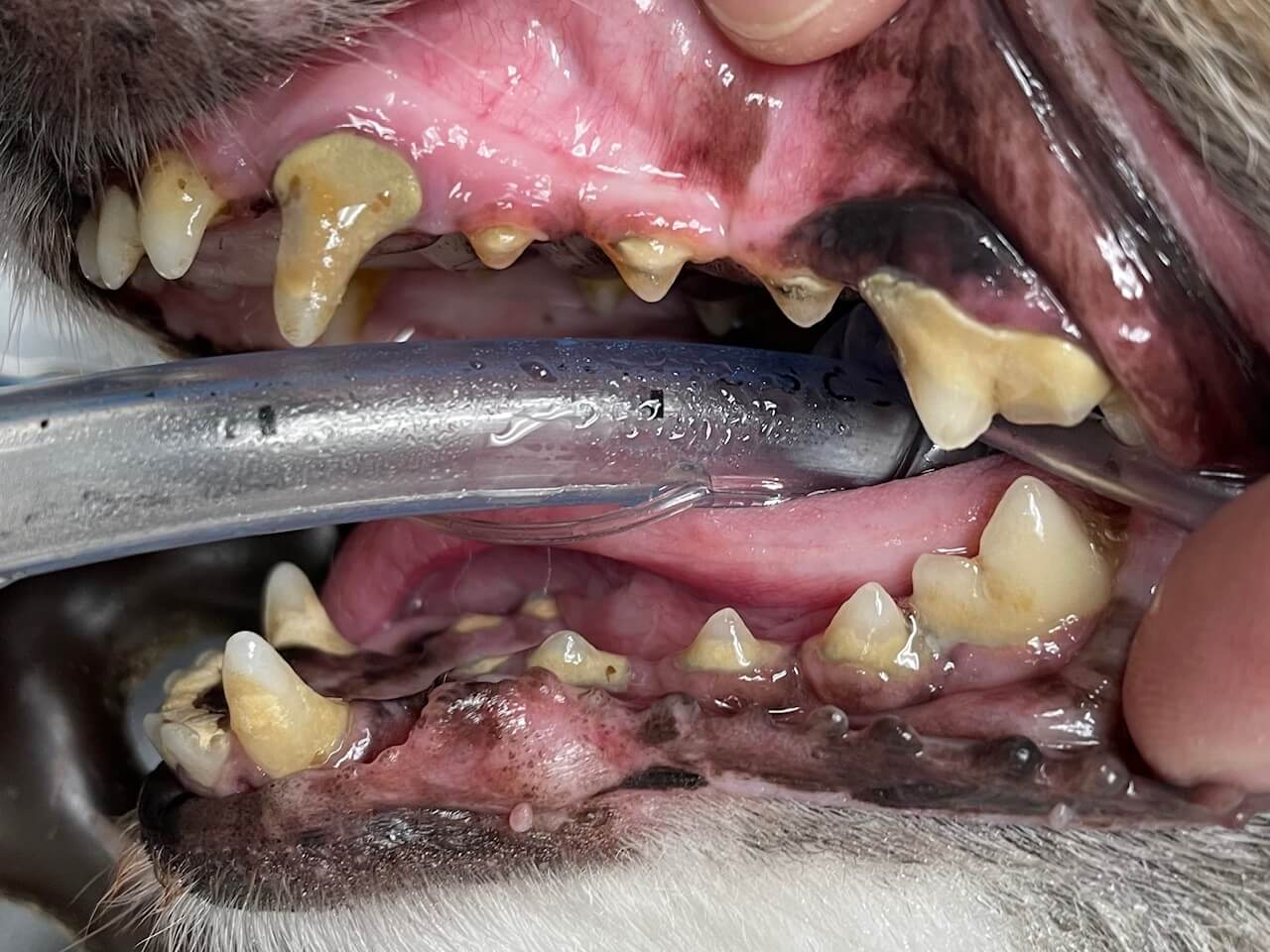
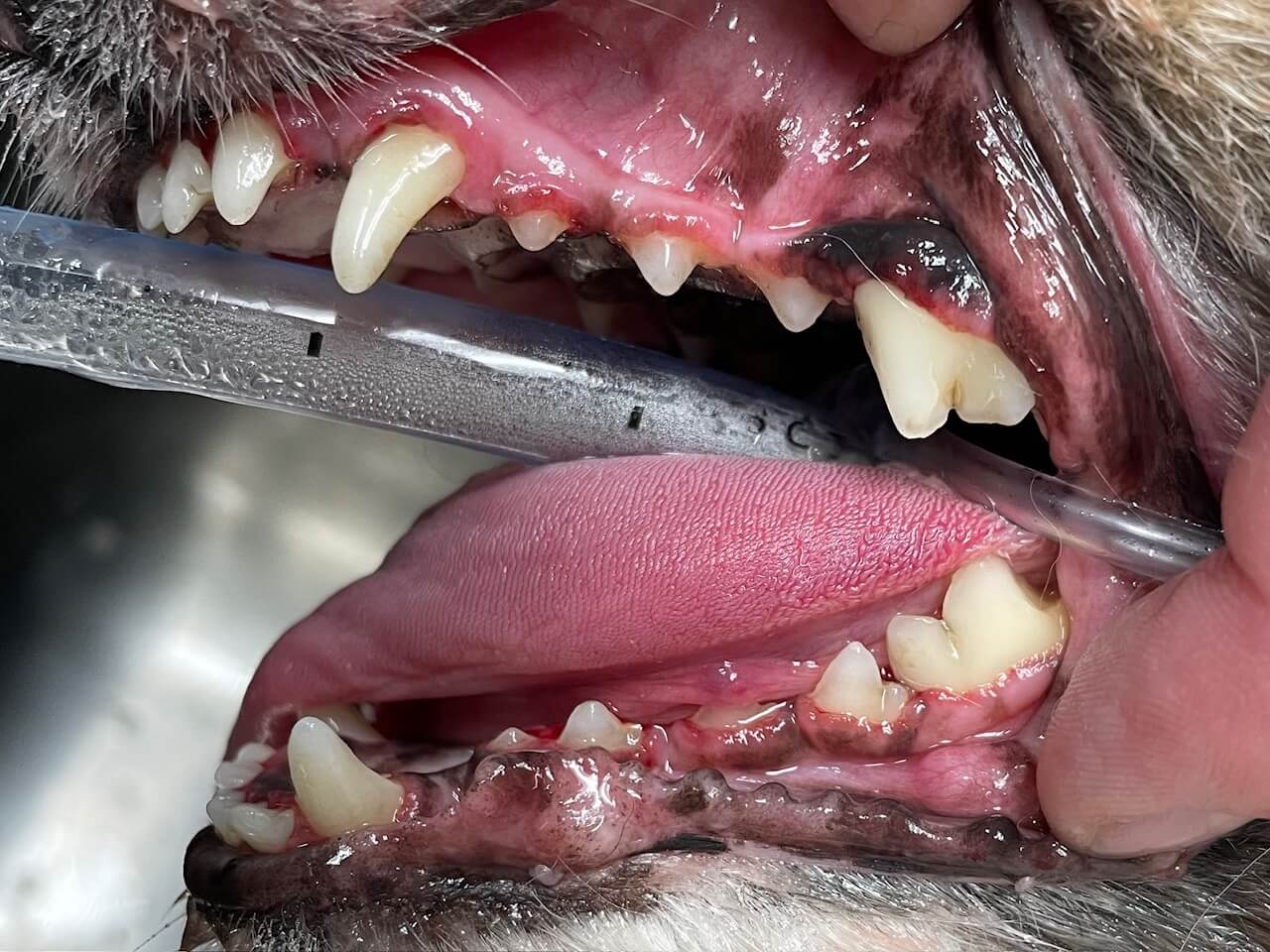
Before & After
This is the mouth of a 12-year-old Terrier with severe dental tartar and periodontal disease. He has had his teeth cleaned previously a few years ago but has not had dental care since then. We removed many badly infected teeth and sutured his gums, and he will be much healthier, and his mouth will not be painful. We advised his owners that he will most likely need to have his teeth cleaned at least once a year in the future because his periodontal disease has been so painful.
